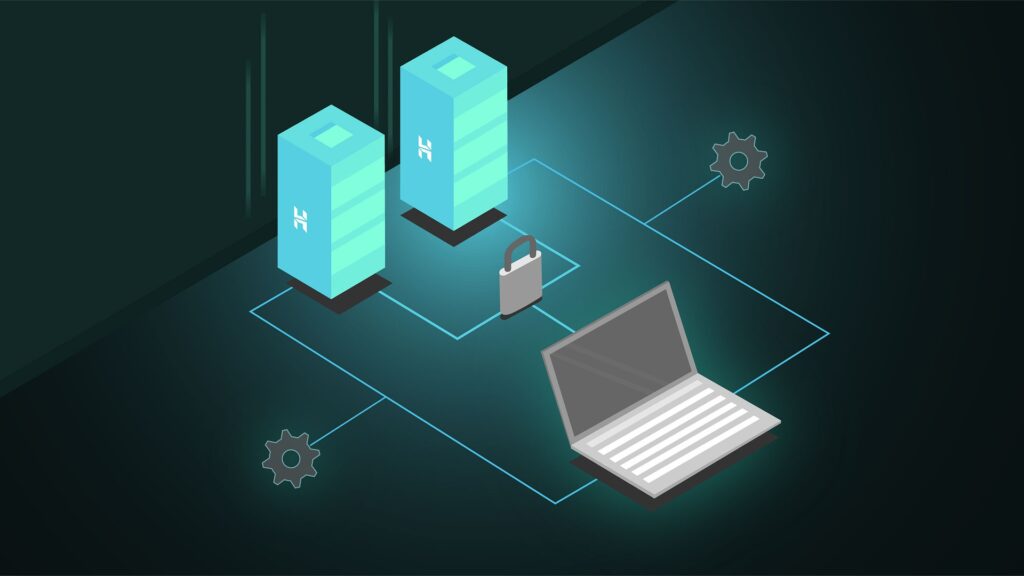Table of Contents
ToggleWhat is IaaS: Everything You Need to Know about IaaS
Description:
Are you curious about IaaS and how it can benefit your business? This tech blog guide will cover everything you need about IaaS, including its definition, benefits, and popular providers.
Introduction:
In cloud computing, there are three main models of service: Software as a Service, Platform as a Service, and Infrastructure as a Service. While SaaS and PaaS are more commonly known, Infrastructure as a Service is critical for many businesses looking to scale up their operations. In this blog, we’ll focus on IaaS and explore what IaaS is, how it works, and its advantages.
What is Infrastructure as a Service (IaaS)?
Infrastructure as a Service is a computing model that provides businesses with virtualized computing resources over the internet. It allows organizations to rent computing infrastructure, including servers, storage, and networking, from a cloud service provider, instead of purchasing and managing their hardware.
With Infrastructure as a Service, businesses can easily and quickly scale their computing resources up or down based on their changing needs. This on-demand availability of computing resources benefits organizations with fluctuating workloads or those that need to launch new services quickly without investing heavily in physical infrastructure.
For e.g., Microsoft Azure provides IaaS services for their customers. Customers have the option to run their applications on virtual machines which are hosted on Microsoft Azure. Please see this article for more information on Microsoft Azure Infrastructure as a Service.
How Does IaaS Work?
Infrastructure as a Service is a pay-as-you-go service that allows organizations to rent computing infrastructure from a cloud service provider, who maintains the hardware and provides the necessary software and support.
The provider’s infrastructure is hosted in a data center and can be accessed online. Customers can log in to their tenants/accounts and manage their computing resources, including server instances, storage, and network settings.
Infrastructure as a Service provider typically offers a range of virtualization options, including single-tenant or multi-tenant environments and dedicated or shared storage. They also provide various tools and services to help customers manage their infrastructure, including monitoring, security, and backup solutions.
Advantages of IaaS:
There are several advantages to using Infrastructure as a Service, including:
- Scalability: Infrastructure as a Service allows businesses to scale their computing resources up or down based on their changing needs. This on-demand availability of computing resources is beneficial for organizations with fluctuating workloads or those that need to launch new services quickly without investing heavily in physical infrastructure.
- Cost Savings: Since businesses only pay for the resources they use, Infrastructure as a Service can be more cost-effective than owning and maintaining physical infrastructure. It also eliminates the need for companies to invest in expensive hardware upfront.
- Flexibility: Infrastructure as a Service allows businesses to choose the computing resources they need without being tied to a specific vendor or technology.
- Security: Infrastructure as a Service providers typically offer advanced security features and compliance certifications, ensuring that businesses’ data is safe and secure.
Popular IaaS Providers:
There are several Infrastructure as a Service provider in the market today, including:
- Amazon Web Services (AWS)
- Microsoft Azure
- Google Cloud Platform
- IBM Cloud
- Oracle Cloud Infrastructure
Each provider offers a range of virtualization options and services, as well as different pricing models and features. It’s important to carefully evaluate each provider to determine the best fit for your business.
FAQs:
What’s the difference between IaaS, PaaS, and SaaS?
SaaS refers to cloud-based software applications, while PaaS refers to cloud-based platforms for developing, testing, and deploying applications. Infrastructure as a Service, on the other hand, provides businesses with virtualized computing resources over the internet.
How secure is IaaS?
Infrastructure as a Service provider typically offer advanced security features and compliance certifications, ensuring that businesses
Can I use IaaS for any workload?
Infrastructure as a Service suits many workloads, including web applications, data processing, and storage.
How do I choose the right IaaS provider for my business?
It’s important to carefully evaluate each provider to determine the best fit for your business. Consider pricing, virtualization options, security features, and customer support.
How does IaaS compare to traditional on-premises infrastructure?
Infrastructure as a Service eliminates the need for businesses to invest in expensive hardware upfront and provides greater scalability and flexibility than traditional on-premises infrastructure.
Conclusion:
IaaS is a cloud service model that provides businesses with virtualized computing resources over the internet. It allows organizations to rent computing infrastructure, including servers, storage, and networking, from a cloud service provider, instead of purchasing and managing their hardware.
With Infrastructure as a Service, businesses can easily and quickly scale their computing resources up or down based on their changing needs.
This on-demand availability of computing resources is handy for organizations with fluctuating workloads or those needing to launch new services quickly without investing heavily in physical infrastructure. As you evaluate the benefits and features of Infrastructure as a Service, consider the popular providers in the market and decide the one that best fits your business needs.
Please share your feedback and comments. This will help us to optimize the content we write.
Thank you!
Studioteck
